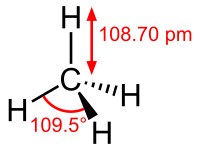
Chondronecrosis with osteomyelitis in broilers: further defining lameness-inducing models with wire or litter flooring to evaluate protection with organic trace minerals
Sign Up to like & getrecommendations! Published in 2020 at "Poultry Science"
DOI: 10.1016/j.psj.2020.08.027
Abstract: The feed additive Availa-ZMC was investigated for the ability to reduce lameness in broilers using 2 alternative models for inducing lameness. The mixture of organic trace minerals was effective in reducing lameness by 20% in… read more here.
Keywords: trace minerals; organic trace; flooring model; litter flooring ... See more keywords

A cooperative study assessing reproductive performance in sows fed diets supplemented with organic or inorganic sources of trace minerals
Sign Up to like & getrecommendations! Published in 2020 at "Translational Animal Science"
DOI: 10.1093/tas/txz178
Abstract: Abstract Sows from three university research facilities (n = 245) were stratified by parity and initial body weight (BW), and within outcome groups, randomly assigned to fortified corn- and soybean meal-based control or organic trace… read more here.
Keywords: gestation; trace minerals; organic trace; trace ... See more keywords

Low Level of Dietary Organic Trace Minerals Improved Egg Quality and Modulated the Status of Eggshell Gland and Intestinal Microflora of Laying Hens During the Late Production Stage
Sign Up to like & getrecommendations! Published in 2022 at "Frontiers in Veterinary Science"
DOI: 10.3389/fvets.2022.920418
Abstract: This study aimed to investigate the effects of dietary organic trace minerals on egg quality and intestinal microflora of laying hens during the late production stage. In total, 1,080 Jinghong-1 laying hens aged 57 weeks… read more here.
Keywords: eggshell; hens late; trace minerals; trace ... See more keywords

Influence of dietary organic trace minerals on enteric methane emissions and rumen microbiota of heat-stressed dairy steers
Sign Up to like & getrecommendations! Published in 2022 at "Journal of Animal Science and Technology"
DOI: 10.5187/jast.2022.e100
Abstract: Abstract Ruminants are the main contributors to methane (CH4), a greenhouse gas emitted by livestock, which leads to global warming. In addition, animals experience heat stress (HS) when exposed to high ambient temperatures. Organic trace… read more here.
Keywords: methane emissions; trace minerals; heat; methane ... See more keywords